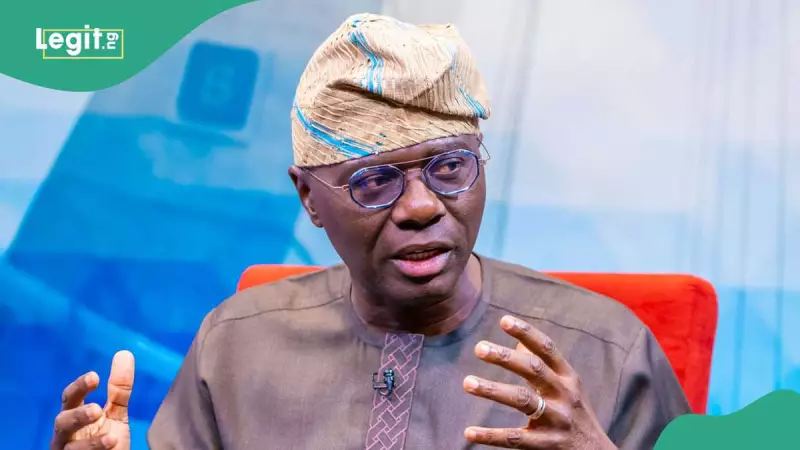
In a significant move to combat economic hardship, Lagos State Governor Babajide Sanwo-Olu has unveiled a comprehensive ₦2.7 billion financial assistance package targeting 10,000 vulnerable households across the state.
The landmark initiative comes as the Federal Government simultaneously expands its national cash transfer program, providing ₦75,000 to qualified beneficiaries throughout Nigeria's six geopolitical zones.
Lagos State's Humanitarian Response
Governor Sanwo-Olu announced the substantial relief package during a ceremony at the LTV Blue Roof in Ikeja, emphasizing his administration's commitment to supporting citizens during challenging economic times.
'This intervention represents our unwavering dedication to the welfare of Lagos residents,' the governor stated. 'We are deploying ₦2.7 billion to provide immediate relief to 10,000 households who need it most.'
Federal Government's Expanded Reach
Complementing the state-level effort, the Federal Government has significantly scaled up its own social support program. The expanded scheme will distribute ₦75,000 to eligible recipients across all six geopolitical zones, representing one of the most extensive cash transfer initiatives in recent Nigerian history.
The coordinated approach between state and federal authorities demonstrates a unified front in addressing economic pressures facing Nigerian families.
Implementation and Impact
Both programs are designed to provide direct financial support to those most affected by current economic conditions. The Lagos State initiative specifically targets:
- Low-income families
- Elderly citizens without stable income
- People living with disabilities
- Other vulnerable demographic groups
Officials from both state and federal levels have assured transparent distribution processes to ensure the funds reach intended beneficiaries.
Broader Economic Context
These interventions arrive amid ongoing economic reforms and rising living costs affecting millions of Nigerian households. The cash transfer programs aim to:
- Provide immediate financial relief
- Stimulate local economies through increased purchasing power
- Reduce poverty levels
- Support household nutrition and essential needs
Economic analysts suggest such targeted interventions could help cushion the impact of economic reforms while longer-term solutions are developed.
As implementation begins, both state and federal governments have established monitoring mechanisms to track the effectiveness of these programs and ensure they achieve their intended purpose of supporting Nigerian households through current economic challenges.





